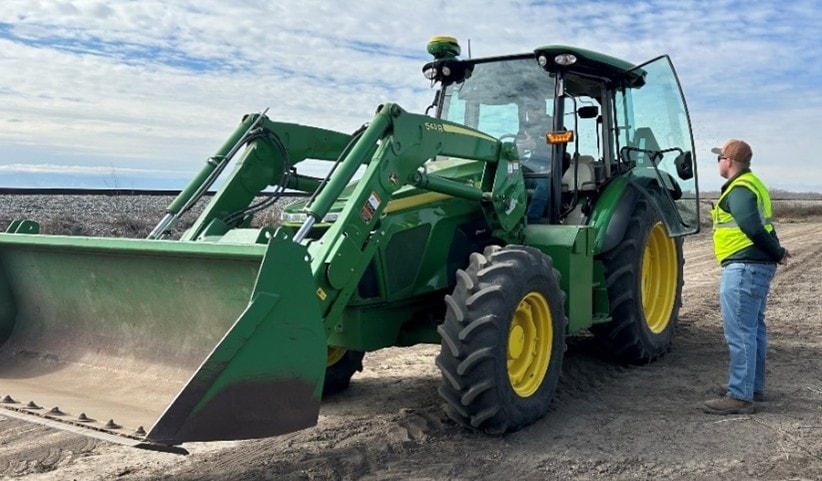All Quiet on the Farm
Customers react to John Deere’s new electric tractor prototype
What’s new:
John Deere's E-Power electric tractor prototypes are as quiet as a car, as easy to drive as a golf cart, and require minimal upkeep – all while providing the same performance as a diesel utility tractor.
While diesel tractors will remain core to our equipment line-up, the E-Power is an additional option fit for a variety of work, such as in orchards, vineyards, municipalities, utilities, and with livestock. The prototypes will be offered in multiple configurations and are being tested throughout 2025 to ensure the tractor meets the demands customers require. The results so far have been surprising to some.
Electric tractor basics:
An electric tractor is powered by batteries instead of a traditional fuel source like diesel. "The E-Power tractor can do the same work as a traditional diesel utility tractor," said Derek Muller, business manager for battery electric vehicle systems at John Deere. Muller describes the main difference being the energy source and electrified infrastructure, making the tractor quiet and easy to drive.
"Our goal with the E-Power tractor is to ensure it performs the same jobs as its diesel counterparts and works with the same implements, while unlocking incremental value,” said Muller. “Through our electric lineup, we'll look to reduce operational and maintenance costs, deliver powerful and reliable performance, and intuitive operation.” The tractor delivers 130 continuous horsepower and can hold up to five KREISEL batteries, allowing customers flexibility based on how much power and run time is needed for the job.

Interest in electric:
In addition to lower total cost of ownership and reduced maintenance, customers share why they would buy an E-Power electric tractor:
- Training skilled labor: Roughly 50 percent of U.S. farmers report that they struggle to find labor. For Daniel, an orchard customer from California, an electric tractor could help ease training new operators, “I do think the tractor is much easier for drivers to understand it and to drive it. It would take less time to teach them [operators] how to use it.”
- Environmental impact: Tyler, a vineyard customer in California, noted that an electric tractor would help his operation meet sustainability goals. “When we look at our carbon footprint, greenhouse gas emissions, we want to try and reduce those as we run our equipment to farm our vineyards, we want to be conscious of the community at large.”
Charging solutions:
The tractors use a common charging port compatible with standard EV chargers (level II). John Deere is exploring various solutions like mobile charging and fast charging (level III) to fit different customer needs.
“Our goal is to not just provide an electric tractor but offer charging solutions that fit customers’ unique needs in order to make owning and charging an electric tractor as easy as possible,” said Randall Jerome, battery electric systems ecosystem lead at John Deere.
Customer feedback:
Overall, customers are impressed with the simplicity and performance.
Ryan, a solar customer from Texas said, “It was my first time ever driving an electric tractor… it was easy to do, very straightforward. Everything was very intuitive, simple.”
Christian, who works in orchards, said, "They don't look that much different than the diesel ones. I think it's a good thing."
Looking ahead:
John Deere is working closely with customers to refine the E-Power tractors. “At the end of the day, we know an electric tractor will not be the right fit for every farmer,” explained Muller. “But the E-Power line-up will be an exciting addition to our portfolio of tractors ultimately allowing customers to choose what best fits their operation.”